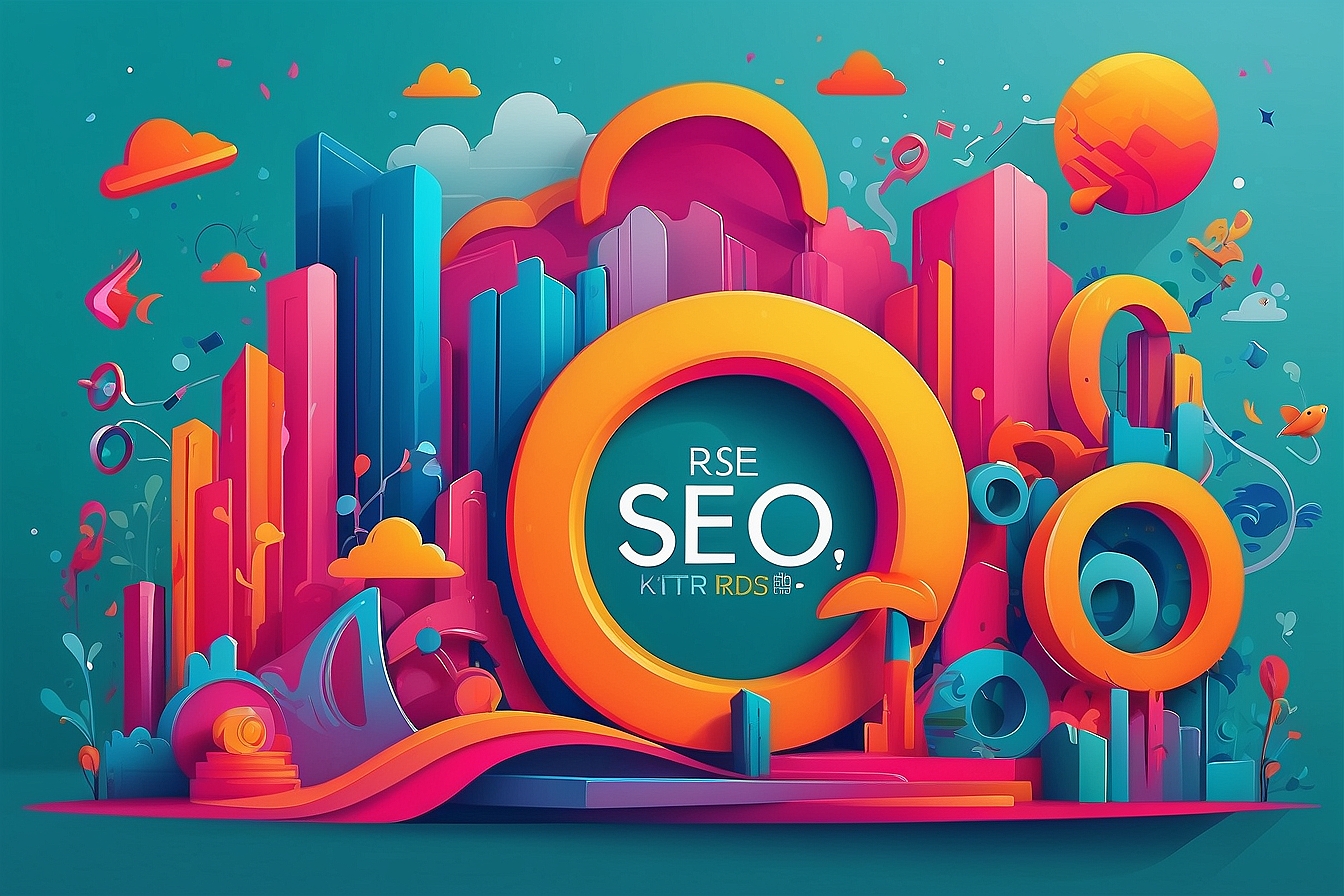In the rapidly evolving world of digital marketing, one term seems to dominate the conversation: Artificial Intelligence (AI). As this transformative technology continues to make unprecedented waves across various industries, its impact on Search Engine Optimization (SEO) strategies is becoming increasingly evident. In 2024, AI has emerged as the driving force behind optimizing websites for better search engine rankings and revolutionizing traditional SEO practices.
But what exactly is AI? At its core, Artificial Intelligence refers to computer systems that can perform tasks that typically require human intelligence. These intelligent algorithms not only possess the ability to analyze vast amounts of data but also continuously learn from it in order to improve their performance over time. By leveraging machine learning and natural language processing techniques, AI enables marketers and SEO specialists to gain deeper insights into searcher intent and create highly targeted campaigns that resonate with their target audience.
In today’s hyper-competitive online landscape, where businesses strive for visibility in search engine results pages (SERPs), SEO plays a vital role in driving organic traffic and enhancing brand visibility. With billions of websites vying for attention on popular search engines like Google or Bing, businesses cannot afford to overlook the importance of having a solid SEO strategy in place. Effective SEO ensures that potential customers find your website when they search for relevant keywords or phrases related to your products or services. It helps establish authority within your industry niche by amplifying your online presence and ultimately leads to increased conversions and revenue generation.
With an understanding of these key concepts now firmly established, let us delve deeper into how AI is reshaping the future of SEO – offering innovative solutions that provide unparalleled opportunities for businesses looking to stay ahead in a fiercely competitive digital marketplace. So buckle up as we embark on an exciting journey into the world where machines are taking charge – transforming traditional rules while unlocking new realms of possibilities!
Overview of traditional SEO techniques:
Common manual approaches used by marketers:
For years, digital marketers have relied on a range of manually implemented SEO techniques to boost website visibility and improve search engine rankings. Keyword research and optimization, content creation and optimization, link building, meta tag optimization, and website performance analysis were just a few of the well-established practices adopted by professionals in the field.
Limitations or challenges faced with these techniques:
Though effective at their core, traditional SEO techniques often face limitations that hinder optimal results. One significant challenge is the sheer volume of data involved in analyzing keyword trends and optimizing content for target keywords manually. This process can be time-consuming and might not always yield desired outcomes due to constantly evolving search engine algorithms.
Furthermore, conventional methods sometimes fail to grasp complex relationships between different web pages or understand user intent accurately when delivering search results—leading to potential gaps in relevancy between what users are seeking and what they find through search engines alone.
As technology advances rapidly in every sector imaginable, including AI-powered technologies for web-based applications like chatbots or voice assistants such as Siri or Alexa – it’s no surprise that artificial intelligence (AI) is making waves within the realm of SEO too. AI-driven tools hold immense potential to revolutionize traditional SEO practices with enhanced accuracy, efficiency, speed, scalability while overcoming current limitations faced by marketers today
Introduction to AI-powered tools for SEO
AI-powered tools are revolutionizing the field of Search Engine Optimization (SEO) and transforming traditional strategies. These advanced technologies, such as Natural Language Processing (NLP), machine learning algorithms, and deep learning, have the potential to significantly improve website rankings in search engine results pages.
One prominent application of AI in SEO is NLP. This technology allows search engines to understand, interpret, and process human language more effectively. By analyzing user queries and web content with NLP algorithms, search engines can provide more accurate and relevant search results. This means that websites optimized with high-quality content aligned with user intent have a greater chance of ranking higher.
Machine learning algorithms play a crucial role in making sense of vast amounts of data generated by users’ online behavior. These algorithms analyze patterns and trends within this data to identify optimal keywords, create personalized recommendations for website optimization, improve targeting strategies for paid advertising campaigns, and even detect potential issues like duplicate or low-value content.
In addition to NLP and machine learning algorithms, other AI technologies like computer vision also contribute to enhancing SEO practices. For example, image recognition technology enables visual search capabilities where users can discover products or information simply by uploading an image rather than typing keywords into a search bar.
With these advancements in AI-driven SEO tools already taking place today, it’s clear that the future holds even greater possibilities for optimizing websites based on user preferences while meeting the ever-changing requirements of search engine algorithms.
The Rise of AI in SEO
Artificial Intelligence (AI) has emerged as a game-changer in the field of search engine optimization (SEO). With the increasing sophistication and capabilities of AI technologies, SEO professionals have access to powerful tools that can revolutionize how websites are optimized for better search engine rankings.
One area where AI is making significant headway is in keyword research. Traditional keyword research involves identifying relevant keywords manually based on intuition and competitor analysis. However, with AI-powered algorithms, SEO specialists can leverage machine learning to uncover hidden patterns, identify long-tail keywords, and predict user search intent more accurately than ever before.
Moreover, AI offers tremendous potential when it comes to content creation and optimization. Through natural language processing (NLP), machines are now able to understand context, analyze sentiment, detect relevance, and even generate high-quality content autonomously. Imagine an AI-driven system that examines top-ranking articles for a given topic, identifies the best-performing elements like headings or paragraph lengths while avoiding duplicate content issues – this is no longer just wishful thinking but an achievable reality driven by advancements in machine learning algorithms.
These advancements offer exciting possibilities for businesses looking to enhance their online presence through improved organic visibility. In the future of SEO powered by AI technology such as deep learning neural networks combined with natural language processing capabilities will become vital tools for digital marketers aiming not only at understanding user behaviors but at predicting them accurately while delivering tailored content experiences effectively improving website rankings on search engines using advanced techniques from Information Retrieval within Search Engine Optimization (SEO).
Advantages & Benefits
Artificial Intelligence (AI) is revolutionizing the field of Search Engine Optimization (SEO), offering numerous advantages and benefits to digital marketers and website owners. One of the key advantages is that AI enables more efficient and effective keyword research. Traditional SEO practices involved manually conducting extensive keyword research, which was a time-consuming task. However, with AI-powered tools, this process has become highly automated and streamlined. AI algorithms can analyze vast amounts of data from search engines, social media platforms, and other sources to identify popular keywords with high search volumes and low competition. This not only saves valuable time but also provides SEO specialists with more accurate insights to optimize their websites.
Another benefit of incorporating AI into SEO strategies is its ability to enhance content creation. Content plays a crucial role in boosting search engine rankings as well as engaging users on a website. With AI technologies like natural language processing (NLP), machine learning algorithms can generate high-quality content based on predetermined guidelines or user preferences. These algorithms are able to understand context, meaning, tone, style, grammar rules, and targeted keywords to produce optimized content that resonates with both search engines and users.
Additionally, AI empowers marketers to deliver personalized experiences through hyper-targeted marketing campaigns. By utilizing machine learning algorithms that analyze user behavior patterns and preferences across various touchpoints online – such as browsing history or social media interactions – businesses can tailor their SEO efforts towards individual needs in real-time.
Use Cases
Voice-activated searches are becoming increasingly popular and are expected to play a major role in the future of SEO. With the rise of smart speakers like Amazon Echo, Google Home, and Apple HomePod, people are using voice commands to search for information instead of typing keywords into search engines. AI-powered virtual assistants like Siri and Google Assistant have become integral parts of our daily lives, enabling us to perform various tasks hands-free.
This shift towards voice searches has significant implications for SEO strategies. Traditional keyword-focused optimization becomes less effective when users ask questions naturally through voice commands rather than inputting fragmented queries. To adapt to this change, websites need to optimize their content to provide answers that align with conversational queries. This means focusing on long-tail keywords and natural language patterns that mimic how people speak.
Moreover, AI-driven algorithms employed by virtual assistants impact SERP (search engine results page) rankings as well. These algorithms utilize machine learning techniques to understand user intent better and deliver more accurate search results based on context and relevancy factors such as location data or personal preferences. As a result, traditional SEO approaches may need adjustment or augmentation specifically tailored for optimizing content that is compatible with these intelligent personal assistant platforms.
Impact on Ranking Factors:
The integration of AI into SEO practices has significantly influenced the way search engines rank websites. Traditional ranking factors such as keyword optimization and backlink profiles are still important, but AI has added new dimensions to these algorithms. Machine learning algorithms can now analyze a wider range of factors like user experience metrics, content relevance, and even sentiment analysis.
Google’s RankBrain algorithm is a prime example of how AI is revolutionizing ranking factors. It uses machine learning to understand the context and intent behind search queries, allowing it to deliver more relevant results. This means that websites need to focus not only on optimizing for specific keywords but also on creating high-quality content that aligns with user intent.
Furthermore, with advancements in Natural Language Processing (NLP), search engines can better understand the semantic meaning behind web pages’ content. This eliminates the need for exact-match keywords and encourages brands to create comprehensive and valuable content that addresses users’ questions holistically.
Future Predictions
Looking ahead to 2024, we can expect further advancements in AI technology that will reshape SEO practices even more dramatically. As voice search continues its upward trend, optimizing websites for voice assistants like Siri or Amazon Alexa will become crucial. AI-powered virtual assistants rely heavily on natural language understanding capabilities to provide accurate answers quickly—making it essential for businesses to optimize their content accordingly.
Personalization will also play a significant role in future SEO strategies driven by AI technology. Search engines will continue tailoring results based on individual preferences gathered from data collected through various touchpoints online.
Moreover, as visual search gains popularity—thanks to improved image recognition technologies—brands must ensure their images are optimized effectively using alt tags or descriptive captions since visual elements support both text-based searches and enhance overall user experience.
In conclusion, leveraging AI’s power within SEO practices is becoming increasingly vital for digital marketers aiming to maintain competitive rankings in an evolving landscape. By understanding current impacts and recognizing future trends, businesses can adapt their strategies to remain at the forefront of search engine optimization. The integration of AI into SEO is undoubtedly shaping a future where search results are more accurate, personalized, and aligned with user intent than ever before.
Conclusion
In conclusion, the future of SEO is undeniably intertwined with the advancements in AI technology. We have explored how machine learning algorithms, natural language processing, and image recognition are revolutionizing search engine optimization strategies in 2024. The use of AI-powered tools allows marketers to gain valuable insights into user intent, create highly relevant content, and optimize website performance for better search rankings.
Furthermore, AI algorithms are constantly evolving and improving, providing more accurate search results and personalized experiences for users. From voice search optimization to predictive analytics and automated keyword research, the possibilities that AI brings to SEO are endless.
As we look ahead to the future of SEO in 2024 and beyond, it is clear that embracing AI technologies will be essential for businesses wanting to stay competitive in the online landscape. By leveraging these powerful tools effectively, marketers can drive organic traffic growth and improve overall website visibility on search engines. As machines become smarter at understanding human behavior patterns and delivering tailored experiences, it is crucial for professionals in digital marketing to adapt their strategies accordingly.
In an ever-evolving digital world where staying up-to-date with industry trends is paramount, harnessing the power of AI will be a game-changer for successful implementation of SEO practices. Embracing this paradigm shift offers great potential for businesses aiming to thrive amidst fierce competition by elevating their online presence through intelligent automation powered by artificial intelligence – ultimately leading them towards sustained success in today’s dynamic digital market.




